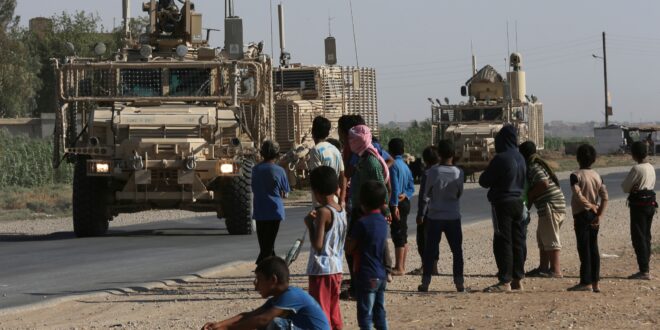The fall of the brutal Assad regime marks a critical opportunity for the United States to remove itself entirely from Syria, avoiding entanglement in further war.
American troops have been in Syria for the past decade with the primary objective of defeating the Islamic State in Iraq and Syria (ISIS), a goal which has effectively been fulfilled since March of 2019 when the Kurdish-led Syrian Democratic Forces (SDF) raised victory flags over the caliphate’s last stronghold. That same year, then-President Donald Trump ordered the withdrawal of remaining troops from Syria, aligning with his rhetoric regarding ending “endless wars” and prioritizing America’s vital interests. Trump did not follow through on this order due to opposition from within his cabinet. Thus, despite achieving the main objective of eliminating the threat posed by ISIS, about 2,000 U.S. military personnel remain in Syria, a number that was only recently revealed by the Pentagon.
Now that Hayat Tahrir al-Sham (HTS) fighters have effectively driven out the authoritarian Assad regime, the argument for U.S. retrenchment from Syria is more pertinent than ever.
As regional actors clearly have a much greater stake in Syria’s future, the U.S. would do well to remove its military personnel before they get caught in the crossfire. Three U.S. troops were killed in January 2024 in a drone attack on a U.S. base near Jordan’s border with Syria by Islamic Resistance in Iraq. Yet, U.S. troops remain exposed to flashpoints of escalatory fighting near the Euphrates River, where Iranian-backed militias have historically been active. Amidst the chaos in Syria, U.S. troops remain sitting ducks with little to no reason for being there.
Additionally, Washington’s NATO treaty ally Turkey has recently launched attacks on Kurdish groups in Syria, with which U.S. troops fought to combat ISIS. With Israel installing troops in southern Syria through what it calls a temporary defensive position, there is no coherent reason for the United States to maintain forces in what could become a proxy war battleground. Washington can take a hands-off approach and acknowledge the futility of preserving a remnant of the global war on terror.
Even though ISIS was defeated in 2019, the Biden administration has committed to maintaining U.S. forces in Syria to “counter ISIS” and “support local partners on the ground.” But as Defense Priorities’ Daniel Depretis noted, the U.S. does not need endless ground deployments to conduct counterterrorism to prevent a resurgence of ISIS.
U.S. interests in the Middle East are quite limited and include defending against anti-U.S. terrorist threats, preventing long-term disruptions to the flow of oil in the international market, and ensuring that no singular power can dominate the region. None of these objectives are advanced by American troops in Syria. Doubling down on failed interventionist policies only exposes the U.S. military to long-term entrapment. Like the U.S. Invasion of Iraq in 2003 and the U.S. mission to support Saudi Arabia in its offensives in Yemen, prolonged involvement in Syria makes scaling back or withdrawing more difficult.
Undoubtedly, the notion of complete withdrawal has faced intense backlash. Proponents of maintaining a U.S. presence in Syria have long opined about a potential “power vacuum” in the country, which appears more likely after the rebel victory. But, given the internal and external constraints that its key allies Russia and Iran are facing, Moscow and Tehran will likely be unable to interfere in Syria enough to change the facts on the ground. Meanwhile, U.S. troops are reportedly not involved in the ongoing rebel operations there.
Countering Iranian influence in the region has long served as a justification for maintaining U.S. forces in Syria. Since HTS’s establishment in 2012, the Sunni Islamist group and Tehran have had an adversarial relationship. With HTS having successfully led the rebel victory in Syria, the flow of Iranian weapons to Hezbollah could be impeded. Since Washington has no real interest in supporting either side of this rivalry, the incoming administration can overhaul U.S. policy in Syria by removing its troops in Syria entirely.
A troop withdrawal from Syria is long overdue. Without a clear and well-defined mission since the defeat of ISIS, American servicemembers should not be exposed to the risk of being caught up in future instances of violence. Trump can and should make good on his instincts and finally bring these troops home.
 Eurasia Press & News
Eurasia Press & News




